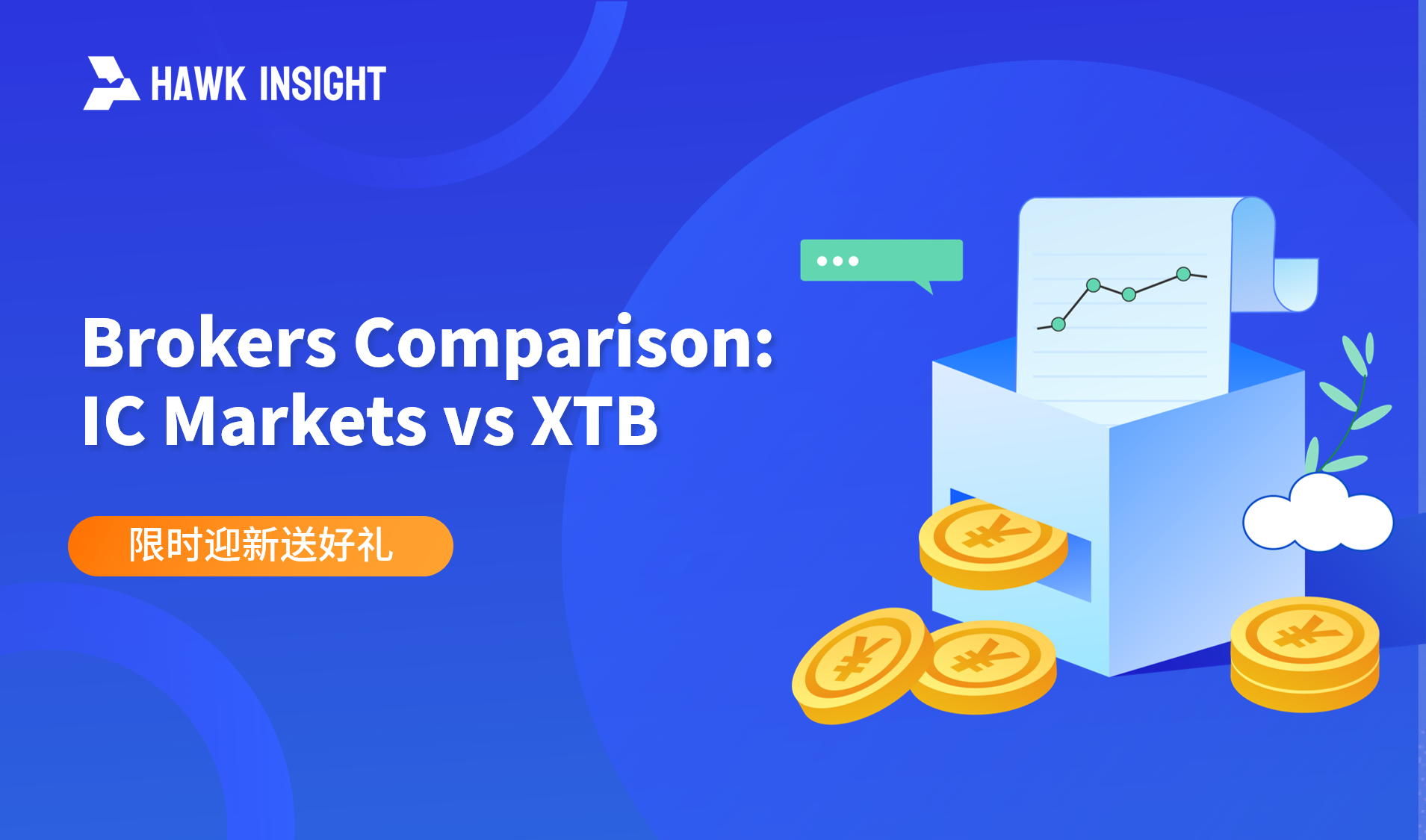Brokers Comparison: IC Markets vs XTB
This article will compare IC Markets and XTB from multiple aspects to help investors deeply understand the advantages and disadvantages of these two platforms and make wise choices.

Overview
When choosing an online trading platform, IC Markets and XTB are both high-quality brokers with international reputation. They are not only subject to strict regulatory protection, but also provide rich markets and trading platforms.This article will compare in detail the core elements of the two brokers, including supervision and security, trading markets and platforms, fees and spreads, and trading risks, to help investors choose the most suitable broker.
Regulation & Security
IC Markets and XTB have high guarantees in terms of supervision and security.XTB is regulated under the authority of the UK's Financial Conduct Authority (FCA), while IC Markets is regulated by the Australia Securities and Investments Commission (ASIC).These regulators use strict standards to ensure the safety of investors 'funds.
In addition, both brokers have taken measures to isolate and store client funds to effectively prevent potential bankruptcy risks.Both platforms are compliant options for investors who want to ensure the safety of their funds.
However, in addition to regulation and security, investors also need to comprehensively consider factors such as market, platform, fees and spreads.Given that approximately 86% of retail traders are at risk of loss, choosing the right tools and analytical methods is particularly important.
Markets and Platforms
XTB and IC Markets have their own characteristics in terms of market types and choice of trading platforms.XTB provides users with more than 3,000 market options, covering diverse assets such as real stocks, indices, commodities and cryptocurrencies; while IC Markets is known for its narrow spread cryptocurrency trading and a wide variety of trading platforms.Both brokers support MetaTrader 4, WebTrader and mobile applications to meet the trading needs of different users.
XTB's platform is suitable for novice users with its ease-of-use and advanced charting tools, while IC Markets is popular among veteran traders for its fast execution speed and raw spread trading.The differences in market choices between the two make them suitable for investors with different needs.
Fees and Spreads
Both XTB and IC Markets are competitive in terms of fees and spreads.XTB offers floating spreads with an average spread of 0.4 points for EUR/USD, while IC Markets offers lower raw spreads with an average spread of 0.2 points for EUR/USD.
In addition, both brokers offer low-commission trading.XTB requires a minimum deposit of $250, compared with $200 for IC Markets, and IC Markets also offers a demo account for risk-free trading practice.
It is worth noting that online transactions are highly risky, with approximately 86% of retail investors reporting losses.Therefore, investors should actively use advanced analytical tools, real-time prices and trading charts to minimize risks.Although the two platforms have different charging structures, they both have reliable supervision and security and are suitable for experienced investors and novices.
Transaction Risk
The risks associated with online trading cannot be ignored.IC Markets and XTB both provide a variety of tools and resources to help users reduce transaction risks.However, investors still need to be cautious, invest only in funds that can withstand losses, adopt risk management strategies such as stop losses, and diversify their portfolios.
In addition, investors should also be wary of fraud and malicious activities.Although XTB and IC Markets are both regulated compliance platforms, any project that claims to be profitable should be treated with caution and platform information needs to be fully understood and evaluated before opening an account.
Finally, online trading can lead to high emotional swings.Market volatility can be stressful and can easily lead to impulsive decisions.Therefore, it is more important to remain rational and formulate clear trading strategies than to operate emotionally.
·Original
Disclaimer: The views in this article are from the original Creator and do not represent the views or position of Hawk Insight. The content of the article is for reference, communication and learning only, and does not constitute investment advice. If it involves copyright issues, please contact us for deletion.